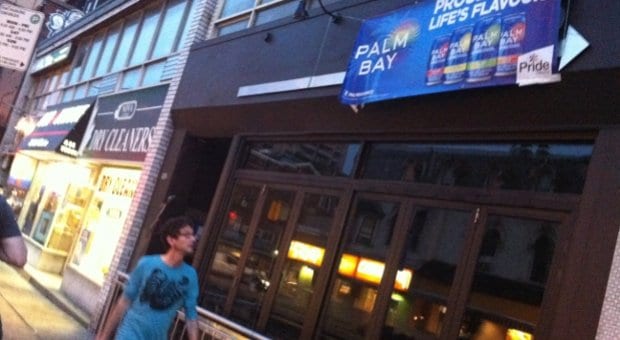The popular women’s bar Slack’s was forced to close after the owner of the space’s previous incarnation teamed up with the bar’s landlord to financially cripple Karen Halliday, its current owner, Halliday alleges.
The bar had been struggling for months when Halliday was presented with a steep rent increase and a sudden demand for back taxes from her landlord on June 5. After a week of trying to negotiate a solution with the landlord, Halliday says, she vacated the bar on June 12 with the understanding that she would be able to continue negotiations. But Halliday was notified by her alarm company that someone had broken into the bar on June 14 –- it was the landlord, who had gone inside to have the locks changed, Halliday says.
“He locked me out illegally, didn’t use a bailiff, didn’t go through any of the proper procedures,” she says.
Halliday says she had agreed with the landlord, John Feeley, to find someone to take over her lease, which would settle any outstanding debts while allowing her to keep the bar open during the lucrative Pride Week. But once she found a new tenant, the landlord refused to deal with her, she says.
“[Feeley] told me that he was going to leave that space vacant, the same way he had left the space beside me vacant for the last four years. I can only guess that he has a developer interested in going in,” Halliday says.
A lawyer for Feeley told Xtra he has no comment.
After further negotiations with the landlord, Halliday says, it was agreed that she would be allowed to enter the bar to remove her property on June 26, but when she arrived with a technician, she says, the landlord barred her from removing any of her heavy equipment.
She says the bar was then reopened during Pride weekend by former Slack Alice’s owner Heather Mackenzie, who currently co-owns The Flying Beaver Pubaret on Parliament Street.
Although Halliday was working to come up with a way to keep her bar open over Pride weekend, she says she now believes that Mackenzie had made a deal with Feeley to force her out of the space illegally so she could use it during Pride. Halliday says Feeley “alluded” to such a deal.
Mackenzie referred Xtra’s questions to her publicist, Rich Bruggeman, who declined to comment.
“These items are between the landlord and the tenant,” Bruggeman wrote in an email.
Halliday says she believes that Mackenzie had been plotting against her with Feeley since at least 2011, when Mackenzie struck a deal to run a beer garden during Pride in the alley next to Slack’s -– a profitable privilege Slack’s had previously enjoyed.
“I was paying him $2,500 to have the garden for two days. She must have offered him more,” she says. “People used to assume that it was still Slack’s garden, but it wasn’t.”
The deal cut off a major source of revenue for the bar during its busiest season, she says.
Halliday also believes that Mackenzie worked with Feeley to try to get her liquor licence revoked.
Halliday was incensed that Mackenzie was using the “Slack’s” name during Pride and had her lawyer send a cease-and-desist request. The bar eventually covered up the Slack’s sign outside with a vinyl Palm Bay ad, which still hangs over the sign at press time.
“That was the major issue, using my name and work I’d done over the last eight years,” Halliday says.
Mackenzie’s representative would not respond to Halliday’s allegations.
The bar is currently unoccupied, but Halliday hopes that a new tenant can make the space work for the community, even if it is Mackenzie. “I can just hope that if it is Heather going in there that she does right by it. There’s a lot of good customers . . . and maybe she can reemploy some of the staff members that are now out on the street.”
Slack’s had employed four people.
Halliday says she is filing a lawsuit against both Feeley and Mackenzie, alleging that she was evicted illegally and that Mackenzie illegally used her business name and property.
“I worked really hard on that street for the last eight years to forge really positive relationships and work with the other business owners and with 51 and 52 Division [of the police] to make sure we had really successful businesses and Pride.
“I’m not on a bitter rampage,” she says. “I’ll do what I need to do legally, but I want to see Church Street flourish.”


 Why you can trust Xtra
Why you can trust Xtra


